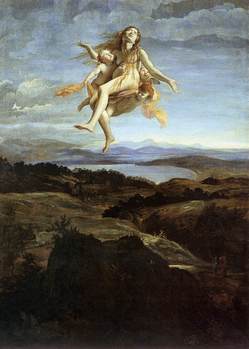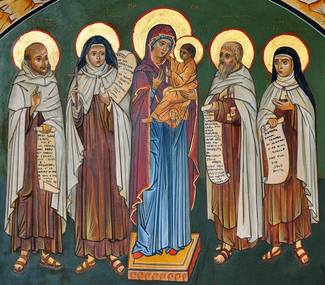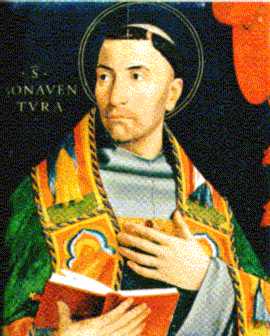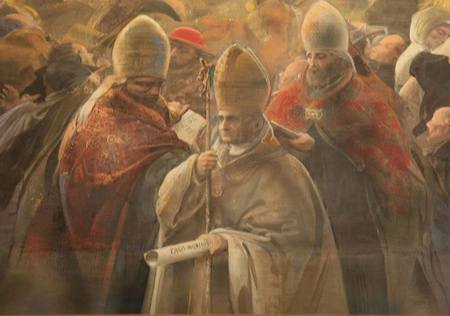 The day dawns, Mary, bright with joy,
The day dawns, Mary, bright with joy,
Jesus is united to the whole of humanity
A little significant theological reflection is needed. What actually is the point of the Incarnation of Jesus? What difference does it make? Why is what happened to Jesus in the Paschal Mystery important for my redemption and salvation? One of my favorite Orthodox theologians/historians of theology, Father Georges Florovsky points to the fact Christ is not for one person, but for all people, and that all people are to become divine. Make sense to you?
The Word became man so that we could “become divine,” “in order to deify us in Himself.” Deification is adoption by God, and “humans sons have become the sons of God.” We are “received by the Word and are deified through His flesh” by virtue of the Incarnation. Born from the Virgin, the Word was not united with only one man, but with the whole of human nature. Therefore everything that was achieved in the human nature of Christ is immediately extended to all men because they have a body in common with Him. There is no coercion involved here. Men are more than similar to Christ; they are truly participants in the human nature of the Word. Christ is a vine and we are the branches, “united with Him by our humanity.” In the same way that the tendrils which grow from a grapevine are consubstantial with it, so are our bodies consubstantial with the body of the Lord, and we receive what He has accomplished. His body is the “root of our resurrection and salvation.” Everyone is renewed, anointed, healed, and exalted in Christ, for “He has taken everyone on Himself.” This is not merely similarity or substitution, but actual unity. Therefore all humanity is anointed by the Spirit in the Jordan, dies on the cross, and is resurrected to immortality in Christ because “He Himself bears our body.”
Father Georges Florovsky, discussing the theology of Saint Athanasius the Great, in chapter two of Florovsky’s patrology.
Cooling a dog
Our Lady of Mount Carmel
I was asking myself why today’s feast of Our Lady of Mount Carmel is a universal feast of the Church. But, why, then, is the feast of Our Lady of the Rosary a widespread feast? Because of the popularity of the devotion is a good approximate answer. Go to Mary for help is a certain gesture of dependence.
The feast recalls a 1226 victory over enemies of the Church and the Carmelite friars, and it also recalls the reception of the scapular by Saint Simon Stock on this date in 1251.
By the 14th century the proposed feast received approval of the Roman Pontiffs Honorius III and later by Sixtus V; over the years it has been questioned by ecclesiastical figures and found to be appropriate for the Carmelite order with a proper vigil Mass and a privileged octave.
Our Lady of Mount Carmel’s feast is another feast of the Virgin Mary that focuses our eyes on the Lord. And, we can never have a enough of that.
You may be interested in reading this piece on scapulars.
Shakespeare’s Sonnet 116
Saint Bonaventure on mystical prayer
One of the famous works of Saint Bonaventure’s is his Journey of the Mind to God. You see it in many places for those wanting a glimpse into this significant medieval thinker. It was in the Roman Divine Office of Readings. We always need an insight or two into contemplation, what it means, how it exists, and so forth. There is no exhausting one’s search into understanding mystical prayer.
I want you to listen to Veronica Scarisbrick’s interview with Franciscan Father Rick S. Martignetti who works in Rome and has authored of Saint Bonaventure’s Tree of Life: Theology of the Mystical Journey (Grottaferrata, 2004). It is a study of Bonaventure’s understanding on prayer and life in the paschal mystery. I found Scarisbrick’s interview both delightful and helpful.
Christ is both the way and the door. Christ is the staircase and the vehicle, like the throne of mercy over the Ark of the Covenant, and the mystery hidden from the ages. A man should turn his full attention to this throne of mercy, and should gaze at him hanging on the cross, full of faith, hope and charity, devoted, full of wonder and joy, marked by gratitude, and open to praise and jubilation. Then such a man will make with Christ a pasch, that is, a passing-over. Through the branches of the cross he will pass over the Red Sea, leaving Egypt and entering the desert. There he will taste the hidden manna, and rest with Christ in the sepulchre, as if he were dead to things outside. He will experience, as much as is possible for one who is still living, what was promised to the thief who hung beside Christ: Today you will be with me in paradise.
For this passover to be perfect, we must suspend all the operations of the mind and we must transform the peak of our affections, directing them to God alone. This is a sacred mystical experience. It cannot be comprehended by anyone unless he surrenders himself to it; nor can he surrender himself to it unless he longs for it; nor can he long for it unless the Holy Spirit, whom Christ sent into the world, should come and inflame his innermost soul. Hence the Apostle says that this mystical wisdom is revealed by the Holy Spirit.
If you ask how such things can occur, seek the answer in God’s grace, not in doctrine; in the longing of the will, not in the understanding; in the sighs of prayer, not in research; seek the bridegroom not the teacher; God and not man; darkness not daylight; and look not to the light but rather to the raging fire that carries the soul to God with intense fervour and glowing love. The fir is God, and the furnace is in Jerusalem, fired by Christ in the ardour of his loving passion. Only he understood this who said: My soul chose hanging and my bones death. Anyone who cherishes this kind of death can see God, for it is certainly true that: No man can look upon me and live.
Let us die, then, and enter into the darkness, silencing our anxieties, our passions and all the fantasies of our imagination. Let us pass over with the crucified Christ from this world to the Father, so that, when the Father has shown himself to us, we can say with Philip: It is enough. We may hear with Paul: My grace is sufficient for you; and we can rejoice with David, saying: My flesh and my heart fail me, but God is the strength of my heart and my heritage for ever. Blessed be the Lord for ever, and let all the people say: Amen. Amen!
(Cap. 7,1 2.4.6: Opera Omnia, 5, 312-313)
Distinguishing religion and theology
Subconsciously we are still studying the history of doctrine as a history of philosophy, and therefore we are bound to miss the very thing. For both theology and doctrine are not philosophy. It is not a speculation on religious topics or problems, even as it does not exclude the theological use of reasons. But it begins, earnestly and emphatically, with revelation — not with an innate “revelation” of the truth in the human mind, but with a concrete Revelation in history, with a true encounter. It is a personal datum — not because it is a private business of human personalities, but because it is a self-disclosure and challenge of a Divine Person of the Personal God.
Father Georges Florovsky
Religion and Theological Tensions
A New Apologetics project
In the years since Blessed John Paul introduced his desire to have new work on knowing, living, and sharing the truth of the Catholic Faith, there’s been a lot of good energy for the new evangelization. You can think of the Tear of Faith, the encyclicals of the recent popes, and most crucial has been Benedict XVI’s establishment of a Vatican office to spearhead evangelization efforts.
Getting to the heart of what the new evangelization means, how it’s supposed to “look” and why it needs our attention is slowing being revealed. I have to say that too many use the word evangelization without precision and without real content and experience. Nevertheless, since John Paul and Benedict, now with Pope Francis we have a new awareness of evangelization’s aim: and affection for Christ and to offer a reasonable proposal for faith in a comprehensive way.
I happen to think the Holy Spirit is working diligently and effectively in having us slowly develop the needed resources with regard to persons and materials. Rushing into such work would not be reasonable since it does take time to do the hard work in truly knowing the need in a time of limited resources. The immediate past Pontiff set the Church’s face on this renewed manner of living focusing us on the personal relationship with the Lord,, bridging the gap between faith and reason, and by asking us to intimately know Scripture, the Liturgy and the Magisterium (I don’t want to call the new evangelization a ‘project’ because it is about our heart and mind).
A Cambridge, Massachusetts group of faithful Catholics have responded to Church’s call for a “New Apologetics,” a new way of proposing Jesus Christ as the Way, the Truth and the Life.
“New Apologetics” is a contemporary way of engaging the questions which need to be addressed; those tough issues are often inadequately answered, or worse, dismissed as unimportant. This is a serious, beautiful adventure.
The New Apologetics is group qualified persons working to share the beauty of the truth of the Church today, in the language of today.
The New Apologetics website is www.NewApologetics.com
May Saint Thérèse of Lisieux guide this new work.
Jesus is not an isolated missionary, nor are we
“Go and make Christ known to all nations.” The missionary spirit is once again coming to the table. As Christians, we are baptized to come into communion with God who is Father, Son, and Holy Spirit, to live as adopted children of God faithful to the life of the Church. The sacrament of Baptism makes us disciples of the Lord. We can’t forget, nor can we neglect, to make the Lord known to all people by the witness of our lives. Our call is the same as the Prophet Isaiah’s, “Here am I; send me” (Is 6:8). The preaching of the Lord’s Kingdom is not reserved to few; no, the mission to proclaim the presence of the Kingdom is given to all the baptized in all places. Hence, we work doing the new evangelization. Catholics as missionaries in this country needs renewal. We Catholics can’t leave the missionary work to the Mormons, the Jehovah Witnesses, the Evangelicals or the Muslims. If we truly believe that the Lord has given us Himself as the way, the truth and the life, then we ought to share this experience. Moreover, in living the Gospel, following the teaching of the Church, the reception of the sacraments, we care for those live on the margins (think of the corporal works of mercy).
I see in Pope Francis calling us to be attentive to the missionary impulse again as fundamental to our faith and life in the Church. The Pope comes as this missionary notion from his own spiritual formation received as a member of the Society of Jesus. No doubt he thinks of the early founders of the Jesuits, and he likely recalls the Jesuit saint Francis Borgia, the third Jesuit Superior General who spent much energy on missionary vocation of the Jesuits, of translating the faith and the Exercises of Loyola into a more concrete expression. We can say that Pope, like Borgia, knows that the missionary work we are called to perform is a ministry that takes on a variety of aspects: preaching, teaching, sanctifying, interceding, healing, guiding others in the spiritual life, administering and governance.
Pope Francis’ Sunday Angelus address needs to be studied and prayed about. Think about the points highlighted.
This Sunday’s Gospel (Lk 10:1-12.17-20) speaks to us precisely of this: of the fact that Jesus is not an isolated missionary, does not want to fulfill his mission alone, but involves his disciples. Today we see that, in addition to the Twelve Apostles, He calls seventy-two others, and sends them into the villages, two by two, to announce that the Kingdom of God is near. This is very beautiful! Jesus does not want to act alone, He has come to bring to the world the love of God and wants to spread that love with a style of communion and fraternity. For this reason, he forms immediately a community of disciples, which is a missionary community. Iright from the start, He trains them for the mission, to go [on the mission].
Beware, however: the purpose is not to socialize, to spend time together – no, the purpose is to proclaim the Kingdom of God, and this is urgent! There is no time to waste in small talk, no need to wait for the consent of all – there is need only of going out and proclaiming. The peace of Christ is to be brought to everyone, and if some do not receive it, then you go on. To the sick is to be brought healing, because God wants to heal man from all evil. How many missionaries do this! They sow life, health, comfort to the peripheries of the world.
These seventy-two disciples, whom Jesus sent ahead of him, who are they? Whom do they represent? If the Twelve are the Apostles, and therefore also represent the Bishops, their successors, these may represent seventy-two other ordained ministers – priests and deacons – but in a wider sense we can think of other ministries in the Church, catechists and lay faithful who engage in parish missions, those who work with the sick, with the various forms of discomfort and alienation, but always as missionaries of the Gospel, with the urgency of the Kingdom that is at hand.
The Gospel says that those seventy-two returned from their mission full of joy, because they had experienced the power of the Name of Christ against evil. Jesus confirms this: to these disciples He gives the strength to defeat the evil one. He adds, though: “Do not rejoice that the spirits submit to you, but rejoice that your names are written in heaven. (Luke 10:20)” We should not boast as if we were the protagonists: the protagonist is the Lord [and] His grace. Our joy is only this: [in] being His disciples, His friends.
May Our Lady help us to be good servants of the Gospel.
Pope Francis
Sunday Angelus Address
8 July 20013
Pacis Nuntius: St Benedict as “exemplar and type of absolute beauty”
Why is Saint Benedict so important for us today? Why spend so much energy trying to promote his cause and to recall his influence upon civilization? One answer is: “The kingdom of heaven is at hand.” You may want to read “Translating St Benedict” by Dom Hugh of Douai Abbey (UK) who does a fine job at locating a piece of our interest.
I also think it’s a good day to remember that Europe –and the USA– needs its heavenly patron to get it out of the moral, political and human confusion that is wreaking havoc today. I wonder what life in the USA would be like if we had a “new” Benedict? The Servant of God Pope Paul VI wrote Pacis Nuntius (1964), an Apostolic Letter by which he names Saint Benedict as the principle patron of all of Europe. In this document we read in an abbreviated form why Abbot and Saint Benedict was important not only to the Pope, but to a continent.
In everlasting memory
Messenger of peace, molder of union, magister of civilization, and above all herald of the religion of Christ and founder of monastic life in the West: these are the proper titles of exaltation given to St. Benedict, Abbot. At the fall of the crumbling Roman Empire, while some regions of Europe seemed to have fallen into darkness and others remained as yet devoid of civilization and spiritual values, he it was who, by constant and assiduous effort, brought to birth the dawn of a new era. It was principally he and his sons, who with the cross, the book and the plow, carried Christian progress to scattered peoples from the Mediterranean to Scandinavia, from Ireland to the plains of Poland (Cf. AAS 39 (1947), p. 453). With the cross; that is, with the law of Christ, he lent consistency and growth to the ordering of public and private life. To this end, it should be remembered that he taught humanity the primacy of divine worship through the “opus Dei”, i.e. through liturgical and ritual prayer. Thus it was that he cemented that spiritual unity in Europe, whereby peoples divided on the level of language, ethnicity and culture felt they constituted the one people of God; a unity that, thanks to the constant efforts of those monks who followed so illustrious a teacher, became the distinctive hallmark of the Middle Ages.
Continue reading Pacis Nuntius: St Benedict as “exemplar and type of absolute beauty”






